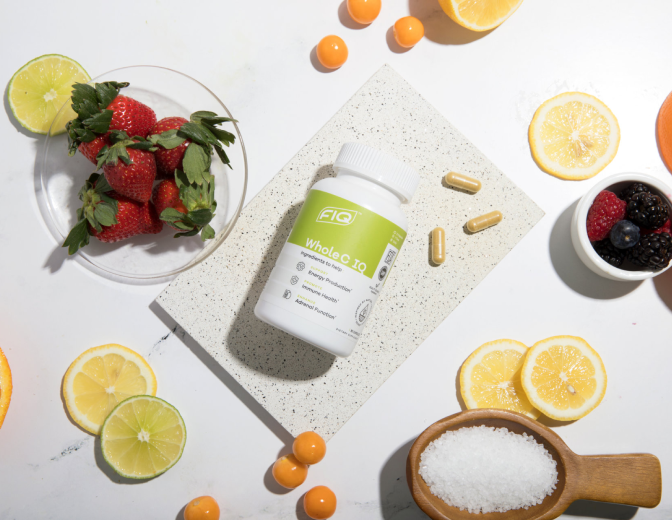Collagen is natural. It’s found seemingly everywhere in your body, from your muscles to your digestive system. It offers many benefits and is almost like the “glue” that holds you together. Without it, you may feel like you’re falling apart.
What Is Collagen?
Collagen is a protein in the body. In fact, it is the most abundant protein in the body. There are many different types of collagen, type 1 collagen making up most of the body’s supply. Type 1 collagen is especially important for wound healing, skin elasticity, and keeping tissue from tearing. Collagen is what gives our hair, skin, tendons, and ligaments structure—allowing us to move and stretch better.
When collagen is strong and plentiful, your skin seems to bounce right back after damage. But, when collagen is weak, and the production process has slowed, even the repetitive movement of smiling will leave lines. Everyone deserves to smile often without worry.
Top 5 Collagen Benefits
- Healthy Skin, Hair, and Nails
Increasing your collagen levels can not only help your skin look firmer and more smooth—it can also keep your nails strong and maybe even reverse signs of hair loss.
- Reduces Joint Pain
Studies have shown consuming more collagen can reduce your risk of joint deterioration. Collagen supplements have also been found to treat people suffering from osteoarthritis as well as, help people with rheumatoid arthritis.
- Boosts Metabolism and Energy
- Healthy Gut
- Healthy Heart
How To Get Collagen Into Your Life
As you age or because of lifestyle choices, your body’s natural collagen production begins to slow down. Thankfully, there are ways like taking collagen supplements that can help you get plenty of this essential protein. Incorporating a quality collagen supplement into your routine can help keep you looking and feeling healthy from the inside out.
http://www.bu.edu/aldolase/biochemistry/html_docs/CollagenTypes&Disorders.pdf
https://www.ncbi.nlm.nih.gov/pubmed/23949208
https://www.ncbi.nlm.nih.gov/pubmed/25989472
https://www.ncbi.nlm.nih.gov/pubmed/22500661
https://www.ncbi.nlm.nih.gov/pubmed/17076983
https://www.ncbi.nlm.nih.gov/pubmed/8378772
http://www.biology.arizona.edu/biochemistry/problem_sets/aa/proline.html
https://www.ncbi.nlm.nih.gov/pmc/articles/PMC1606623/




